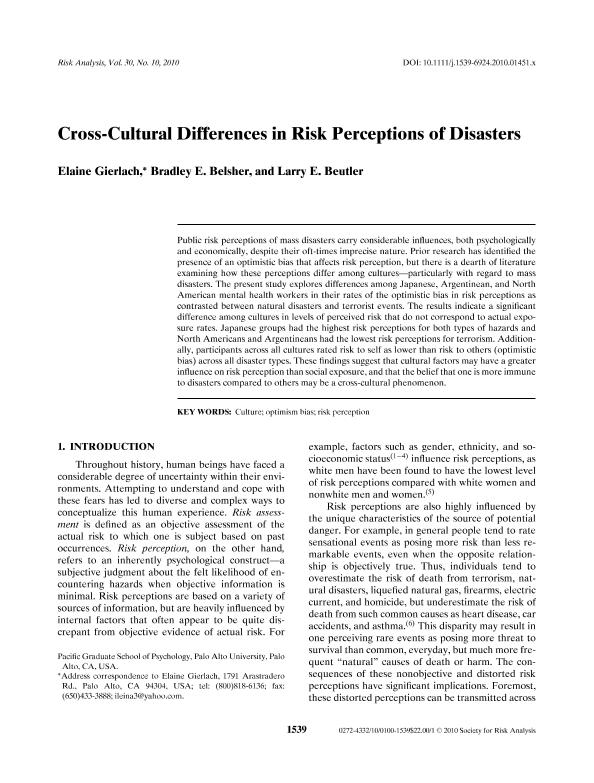American mental health workers in their rates of the optimistic bias in risk perceptions as contrasted between natural disasters and terrorist events. The results indicate a significant difference among cultures in levels of perceived risk that do not correspond to actual exposure
rates. Japanese groups had the highest risk perceptions for both types of hazards and North Americans and Argentineans had the lowest risk perceptions for terrorism. Additionally, participants across all cultures rated risk to self as lower than risk to others (optimistic bias) across all disaster types. These findings suggest that cultural factors may have a greater influence on risk perception than social exposure, and that the belief that one is more immune to disasters compared to others may be a cross-cultural phenomenon.Registros relacionados: En: Risk analysis : an international journal. - McLean, Virginia : Society for Risk Analysis, 1987-2015 = ISSN 0272-4332. - 01/10/2010 Tomo 30 Número 10 - 2010 , p. 1539-1549Materia / lugar / evento: Gerencia de riesgos Análisis de riesgos Percepción del riesgo Desastres naturales Japón Argentina Estados Unidos Otros autores: Belsher, Bradley E.
Beutler, Larry E.
Outras classificações: 7


